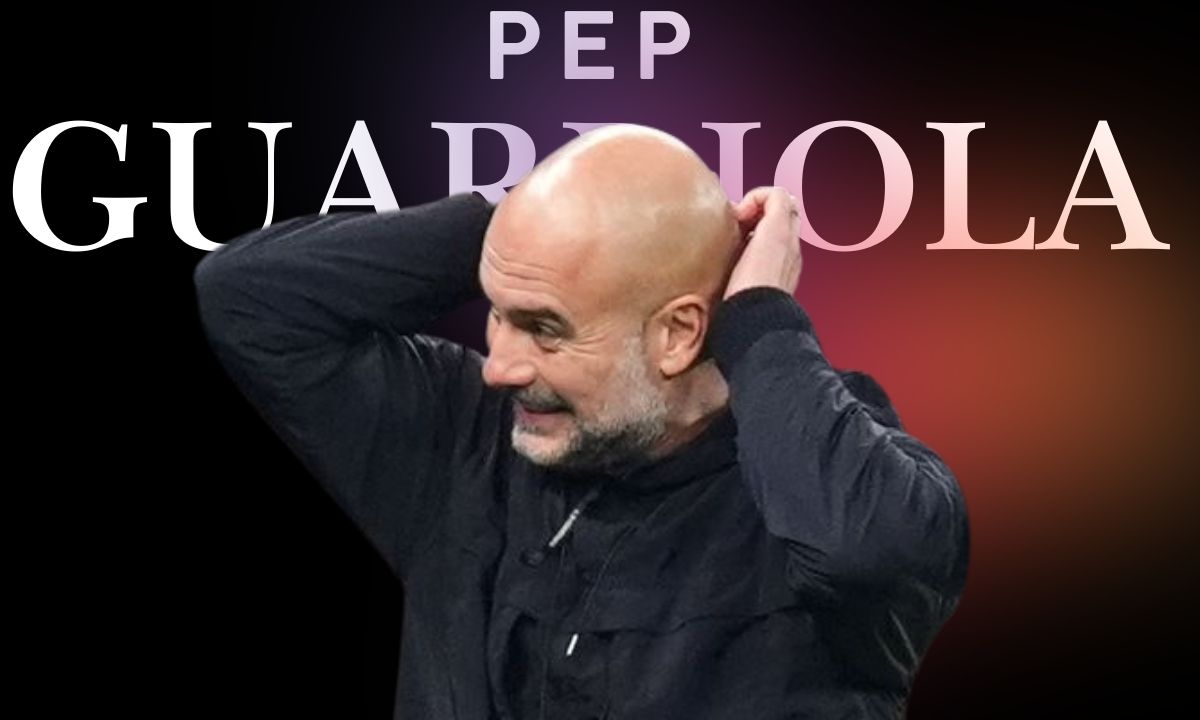Pep Guardiola has never been one to shy away from responsibility. Known for his tactical genius and relentless pursuit of perfection, the Manchester City manager has now found himself at the center of one of the most challenging periods in his illustrious career. With his team languishing in sixth place in the Premier League and their hopes of retaining the title dwindling, Guardiola has stepped forward to shoulder the blame for City’s poor form.
In a candid admission, Guardiola spoke about the difficulties his side has faced this season, insisting that the team’s struggles are not the fault of the players but his own inability to reignite the spark that once made them unstoppable. After a hard-fought and somewhat fortuitous win over Leicester City last Sunday, the manager’s reflections painted a picture of a team that has lost its rhythm and a coach determined to find answers.
A Season of Struggles
Manchester City’s form this season has been nothing short of bewildering. A team that has dominated English football for years now finds itself with just two wins in its last 14 matches across all competitions. For a club accustomed to setting records and lifting trophies, the stark contrast has been jarring. City’s recent victory against Leicester came after a five-match winless run in the league, leaving them a staggering 14 points behind league leaders Liverpool, who also have a game in hand.
“The call is on me first,” Guardiola admitted when asked if he had been too loyal to his players. “I’m unbelievably honest with myself for the reason why we arrive here, and it is me. It’s not the players. They naturally drop a little bit, and that is normal. It happened a little bit last season as well.”
Guardiola’s words reflect a manager acutely aware of his role in steering the ship. The man who once led City to an unbeaten streak and four consecutive league titles now faces the daunting task of reviving a side that has lost its way.
Injuries Take Their Toll
While Guardiola has been quick to take responsibility, it’s impossible to ignore the impact of injuries on City’s campaign. The team’s defensive backbone has been severely weakened, with key players like Rúben Dias and John Stones sidelined. Midfield stalwarts Rodri and Matheus Nunes have also been absent, alongside promising talent Oscar Bobb. These injuries have left City’s squad stretched thin, forcing Guardiola to tinker with his lineup more than he’d like.
Despite these challenges, Guardiola refuses to hide behind excuses. “Even with that, I should have found a way to get better results,” he said. “This is the reality. I lead that group of players, and I could not lift them.”
One glimmer of hope for City comes in the form of goalkeeper Ederson, who could make his return against West Ham after missing three matches with a leg injury. However, the visitors to the Etihad on Saturday will also be dealing with their own injury woes. West Ham will be without their captain and top scorer, Jarrod Bowen, who is recovering from a fractured foot.
Searching for Solutions
For Guardiola, the task at hand is clear: to recover the style of play and mentality that has made City one of the most feared teams in Europe. Reflecting on the win against Leicester, Guardiola acknowledged the team’s struggles to find rhythm and reach the heights of their previous campaigns.
“We have to recover our game because we were lucky in Leicester,” Guardiola admitted. “Spirit, run, and desire, of course, but I know our level because I saw it here in front of my eyes during many, many years, and I’m not going to deny myself. The players are not going to deny ourselves the reality.”
Guardiola’s honesty is refreshing, but it also underscores the complexity of the challenges facing City. The team’s decline isn’t just about tactics or injuries; it’s about rediscovering the hunger and focus that once defined them. Guardiola hinted at the mental aspect of the game, suggesting that sometimes a change in mindset is needed to lift a team.
“It’s football,” he said. “Sometimes you know you need a change and something in the mind to recover some aspects and lift the team. This is what I need right now, and that’s why the victory in Leicester was really, really important. I’m not denying that.”
A Manager’s Burden
Guardiola’s willingness to accept blame is both admirable and revealing. It’s a hallmark of his management style, rooted in a deep sense of accountability and self-reflection. But it also speaks to the immense pressure he places on himself to deliver success. For Guardiola, the responsibility for City’s fortunes lies squarely on his shoulders.
“Why in the past they followed me, they were able to get results?” he pondered aloud. “We were the only unbeaten team in Europe and top of the league. Immediately we went down. For injuries, many things we’ve talked about. But even with that, I should have found a way to get better results.”
These words offer a glimpse into the mind of a man who is constantly analyzing, questioning, and striving to improve. Guardiola’s relentless pursuit of excellence has been the driving force behind his success, but it also means he’s never satisfied. Even in the face of adversity, he’s determined to find solutions and turn things around.
The Road Ahead
As City prepare to face West Ham, the stakes couldn’t be higher. A win would give them consecutive victories for the first time since late October and provide a much-needed boost to their confidence. But anything less than three points would only deepen the sense of crisis.
West Ham, for their part, will be looking to exploit City’s vulnerabilities. Despite their own injury setbacks, David Moyes’ side has shown resilience and will be eager to test City’s mettle. For Guardiola, the match represents an opportunity to prove that his team can still compete at the highest level.
City’s journey this season has been a rollercoaster, filled with moments of brilliance and periods of struggle. But if there’s one thing Guardiola has shown throughout his career, it’s that he’s capable of overcoming challenges. Whether it’s adjusting tactics, inspiring his players, or simply finding new ways to win, Guardiola’s determination to succeed remains unwavering.
A Message of Hope
In the end, Guardiola’s message is one of hope and accountability. By taking responsibility for City’s struggles, he’s setting the stage for a potential revival. It’s a bold move, but it’s also a reflection of the confidence he has in his abilities and the trust he places in his players.
“Hopefully we can continue now,” he said, looking ahead to the future. It’s a simple statement, but it carries with it the weight of expectation and the promise of redemption. For Guardiola and Manchester City, the road ahead may be challenging, but the journey is far from over.


